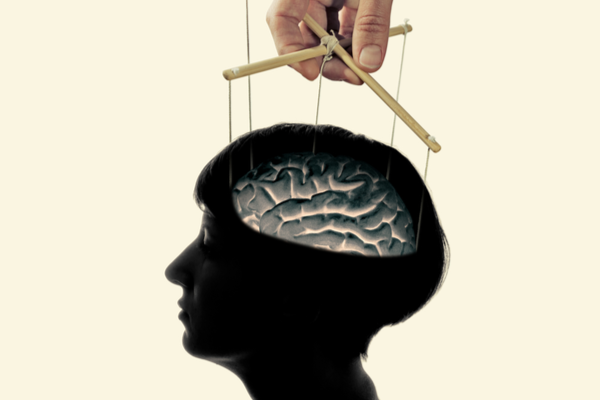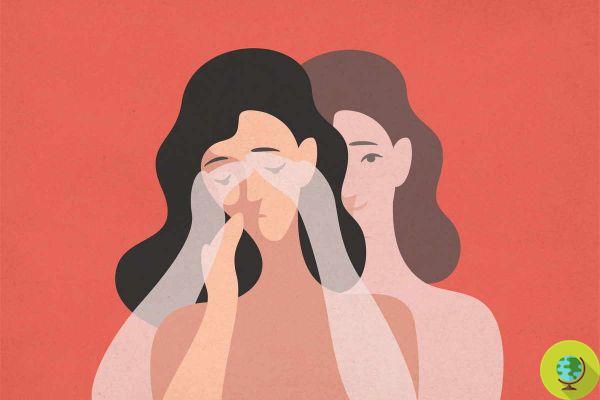
News related to the war in Ukraine can cause anxiety and stress. Here's what to do to learn to recognize our emotions and avoid being overwhelmed by stress and war anxiety.
The news and pictures of the last few days have sparked a lot of reactions in people. The sight of tanks, explosions, destroyed cities and entire families displaced causes sorrow and horror. Ukraine is close, as close to us are its citizens, who have been living in our country for years. It is inevitable to identify with and recall the monsters of the past, even if many of us have not experienced them: the cold war, the world war, Chernobyl.
There are those who do not worry too much and do not inquire and those who do it continuously, looking for the latest news and hoping to find positive news. Thought comes to formulate and visualize hypotheses, such as: "what if nuclear war breaks out?" and “what if the wind brought the radiation here?”, “what if the other European countries were also attacked?”, “Do we have to escape?”.
This state of alert, worry or outright fear, it can generate anxiety and stress. An anxiety that can interfere in the realization of our daily actions and in biological functions such as sleep or appetite. As a result we are nervous and not very focused on work or driving.
If you feel this way or have someone close to you who is particularly suffering from "title anxiety" or "war anxiety" there are strategies for recognizing emotions and managing stress.
Index
Recognize the emotions of war anxiety
The first step, according to experts, is to recognize one's emotions. Do we simply feel worried or are we overwhelmed? Are we afraid? About what? Any consequences on the economy? About our work? National security?
Once emotions are recognized, we need to talk about them with those closest to us, with a friend or family member. In this way the dangers are relativized and the fears are reduced. If you are unable to control the emotion then it is good to talk to a doctor or psychologist.
Check when and how to inquire
It is good to inquire. The problem arises when you are glued to your cell phone or TV waiting for new news and disrupting your daily routine. Thus we move from control to nomophobia, increasing long-term anxiety. To avoid this overexposure, you need to set the times or times when you consult the news. For this it is good to disable news feeds and notifications. Furthermore, the sources must be carefully selected, avoiding the most sensationalist ones or fake news.
Accept uncertainty
Unfortunately, political decisions are not in our hands and worrying is useless. So it is best to focus on what can be done and the actions we can control. So the first thing is to accept your emotions and focus on the present and your health.
You can engage in an awareness campaign or help raise humanitarian aid. But without losing sight of our life here and now.
Eat healthy and slowly
Nutrition is important because the well-being of our intestine is reflected in the mental one and vice versa. While food sometimes seems like the best consolation, bingeing on fatty and sugary foods would only worsen our mood. A diet rich in fiber, vitamins, proteins and essential fatty acids, on the other hand, will favor the general well-being of the organism, a better immune response and also a good mood. The anti-stress nutrients par excellence are vitamins, magnesium and Omega 3 fatty acids. Then more vegetables, nuts, fish, eggs, fruit and whole grains.
Eating slowly and above all with full attention to what you are doing helps not only to appreciate food more and promote good digestion. But also to free the mind from thoughts and worries.
Play sports and enjoyable activities
Physical activity is an excellent anti-stress. In fact, sport makes us produce more dopamine and serotonin. Also, focusing on physical activity clears the mind and distracts from other thoughts.
It is also good to indulge in enjoyable activities such as our favorite hobby and meeting up with friends. A good comic movie or an enjoyable book will certainly help lower your stress levels.
Get enough sleep
Anxiety and stress can cause sleep disturbances resulting in fatigue and increased stress throughout the day. To ensure a peaceful and restful sleep, we need to create an environment conducive to rest, both in the bedroom and in our mind.
So, avoid watching your cell phone or television at least half an hour before bedtime. The bedroom needs to be tidy, the light low and the temperature neither too cold nor too hot.
The bed must be cozy and comfortable.
Mindfulness and meditation practice, relaxation exercises through breathing control can also help.
When to contact your doctor or psychologist
If you are already suffering from mental health imbalances such as anxiety, post-traumatic stress or depression, you absolutely need to drastically reduce your viewing of unpleasant news and images. If you feel particularly restless and are unable to think of anything else, and unable to carry out daily actions calmly, you should contact your doctor or therapist.
You might also like:
- Passionflower purple, the plant that can reduce anxiety and insomnia in just 30 minutes
- Climate Anxiety: More than half of young people think "humanity is doomed," the study
- Curcumin: The unexpected sleep and anxiety benefits of the turmeric supplement
- Mindfulness meditation improves brain gray metry, science confirms this


























